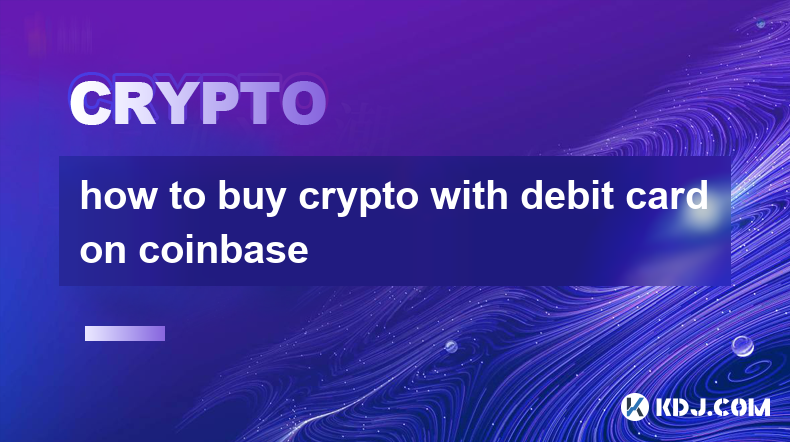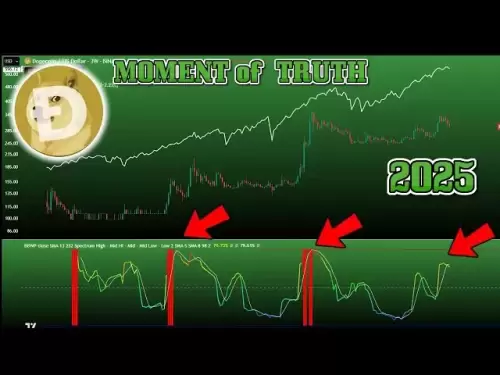-
 Bitcoin
Bitcoin $102,845.0810
-0.51% -
 Ethereum
Ethereum $2,360.7115
-5.05% -
 Tether USDt
Tether USDt $1.0000
-0.02% -
 XRP
XRP $2.3322
-1.56% -
 BNB
BNB $635.1312
-1.30% -
 Solana
Solana $163.0761
-3.11% -
 USDC
USDC $0.9997
-0.02% -
 Dogecoin
Dogecoin $0.2170
0.09% -
 Cardano
Cardano $0.7206
-3.32% -
 TRON
TRON $0.2609
-4.01% -
 Sui
Sui $3.7282
-1.18% -
 Chainlink
Chainlink $15.0074
-2.98% -
 Avalanche
Avalanche $21.5426
-3.98% -
 Stellar
Stellar $0.2783
-3.36% -
 Hyperliquid
Hyperliquid $25.6559
-2.34% -
 Shiba Inu
Shiba Inu $0.0...01416
-1.40% -
 UNUS SED LEO
UNUS SED LEO $8.6486
0.25% -
 Hedera
Hedera $0.1876
-2.34% -
 Bitcoin Cash
Bitcoin Cash $388.0093
-2.38% -
 Toncoin
Toncoin $3.0178
-2.21% -
 Litecoin
Litecoin $95.1816
-2.08% -
 Polkadot
Polkadot $4.4777
-3.74% -
 Monero
Monero $342.8134
1.00% -
 Bitget Token
Bitget Token $5.0914
0.22% -
 Pepe
Pepe $0.0...01275
2.97% -
 Dai
Dai $0.9998
-0.01% -
 Pi
Pi $0.7285
0.99% -
 Ethena USDe
Ethena USDe $1.0005
-0.02% -
 Uniswap
Uniswap $5.6757
-1.80% -
 Bittensor
Bittensor $398.6696
-6.02%
how to buy crypto with debit card on coinbase
Using a debit card on Coinbase for cryptocurrency purchases offers instant funding, enhanced security, lower fees, and a user-friendly process to acquire digital assets.
Jan 30, 2025 at 04:07 am

Key Points:
- Benefits of Using a Debit Card for Cryptocurrency Purchases
- Step-by-Step Guide to Buying Crypto with a Debit Card on Coinbase
- Frequently Asked Questions
Benefits of Using a Debit Card for Cryptocurrency Purchases:
- Convenience: Debit cards offer a quick and easy way to fund cryptocurrency purchases without the need for wire transfers or bank account linking.
- Instant Access: Cryptocurrencies purchased with a debit card are immediately credited to your Coinbase account, allowing for immediate trading or transfer.
- Security: Coinbase utilizes industry-leading security measures to protect against unauthorized transactions and account compromises.
- Low Fees: Coinbase's debit card purchase fees are typically lower than wire transfer fees, making it a cost-effective option for small- to medium-sized purchases.
Step-by-Step Guide to Buying Crypto with a Debit Card on Coinbase:
Step 1: Create a Coinbase Account
- Visit the Coinbase website or download the Coinbase app.
- Click "Sign Up" and follow the instructions to create an account.
- Verify your identity by providing required personal information and documentation.
Step 2: Add a Debit Card
- Once your account is verified, click on "Payment Methods" under the "Settings" tab.
- Select "Add a Debit Card" and enter your card information.
- Coinbase will charge a small fee (usually under $1) to verify your card.
Step 3: Choose a Cryptocurrency
- Coinbase supports a wide range of cryptocurrencies, including Bitcoin, Ethereum, and Litecoin.
- Click on the "Buy" tab and select the cryptocurrency you want to purchase.
Step 4: Enter Amount and Debit Card Details
- Enter the amount of cryptocurrency you want to buy in the designated field.
- Select your debit card as the payment method.
- Verify your transaction details and click "Buy."
Step 5: Complete Purchase
- Coinbase will process the transaction and credit your cryptocurrency to your account.
- The funds will be immediately available for use.
FAQs:
Q: How long does it take to buy crypto with a debit card on Coinbase?
A: Purchases typically process within a few minutes, although it may take slightly longer during periods of high transaction volume.
Q: Are there any limits on the amount of crypto I can buy with a debit card?
A: Yes, Coinbase has daily and weekly limits on debit card purchases. These limits vary depending on your verification level and card issuer.
Q: What fees are charged for debit card purchases on Coinbase?
A: Coinbase charges a small transaction fee for each debit card purchase. The exact fee varies depending on the cryptocurrency and transaction amount.
Q: Can I use a credit card to buy crypto on Coinbase?
A: No, Coinbase does not currently support credit card purchases for cryptocurrency.
Q: Is it safe to buy crypto with a debit card on Coinbase?
A: Yes, Coinbase utilizes industry-leading security measures to protect against unauthorized transactions and account compromises.
Disclaimer:info@kdj.com
The information provided is not trading advice. kdj.com does not assume any responsibility for any investments made based on the information provided in this article. Cryptocurrencies are highly volatile and it is highly recommended that you invest with caution after thorough research!
If you believe that the content used on this website infringes your copyright, please contact us immediately (info@kdj.com) and we will delete it promptly.
- Bitcoin (BTC) Traded at $103,895 on May 18, 2025
- 2025-05-19 12:20:15
- Unilabs (UNIL) Can Replicate BlockDAG's Success and Provide Higher Returns Than BONK
- 2025-05-19 12:20:15
- 🚨 BREAKING: Trump's $TRUMP Coin Scandal — Billions Lost, Insider Trading Alleged
- 2025-05-19 12:15:13
- In a Market Full of Noise, Mutuum Finance (MUTM) Is Quietly Gaining Steam
- 2025-05-19 12:15:13
- Mobile Mining on Bitcoin Solaris (BTC-S) Introduces a New Standard for XRP Holders
- 2025-05-19 12:10:15
- Pope Leo XIV, the Planet's New Pope, Has a History of Fighting for Climate Justice
- 2025-05-19 12:10:15
Related knowledge

What is Ethereum’s Slashing mechanism and how to punish malicious behavior?
Feb 20,2025 at 03:08am
Key PointsOverview of slashingDifferent types of slashing in EthereumIncentives and consequences of slashingIdentifying and reporting slashed validatorsOngoing discussions and potential improvementsEthereum's Slashing Mechanism: Punishing Malicious BehaviorEthereum's slashing mechanism is an essential tool for ensuring network security and punishing mal...

What is the verifier node of Ethereum and how to become a verifier?
Feb 19,2025 at 06:00pm
The Verifier Node of Ethereum: A Comprehensive GuideKey Points:What is a Verifier Node?How to Become a Verifier NodeResponsibilities and Rewards of a Verifier NodeMinimum Requirements for Becoming a Verifier NodePotential Difficulties in Running a Verifier Node1. What is a Verifier Node?A Verifier Node is an independent entity on the Ethereum network th...

What is Ethereum’s staking, and how to participate and earn money?
Feb 19,2025 at 04:37pm
Key Points:Understanding Ethereum's Staking MechanismSteps to Participate in StakingBenefits and Rewards of StakingSecurity and Risk ConsiderationsTechnical Requirements and Hardware OptionsPotential Challenges and Troubleshooting TipsFAQs on Ethereum StakingWhat is Ethereum's Staking?Proof-of-Stake (PoS) is a consensus mechanism used in blockchain netw...

What is Ethereum’s DAO (Decentralized Autonomous Organization) and how does it work?
Feb 20,2025 at 03:12am
Key PointsDefinition and Structure of a DAOGovernance and Decision-Making in DAOsBenefits and Use Cases of DAOsChallenges and Limitations of DAOsWhat is Ethereum's DAO (Decentralized Autonomous Organization) and How Does It Work?Definition and Structure of a DAOA Decentralized Autonomous Organization (DAO) is an innovative governance and management fram...

What is Ethereum's multi-signature wallet and how to improve security?
Feb 20,2025 at 02:18pm
Key Points:Understanding the Concept of a Multi-Signature WalletBenefits and Drawbacks of Multisig WalletsRequirements for Setting Up a Multisig WalletStep-by-Step Guide to Generating a Multisig WalletImplementing Strategies for Enhanced Security1. Understanding the Concept of a Multi-Signature WalletA multi-signature (multisig) wallet in the Ethereum e...

What is Ethereum's oracle and how to provide data for smart contracts?
Feb 21,2025 at 01:30am
Key Points:Understanding the concept of oracles in EthereumExploring different types of oraclesDetailed guide on how to provide data for smart contractsAddressing potential challenges and considerationsWhat is Ethereum's Oracle?Oracles are crucial components in the Ethereum ecosystem, enabling smart contracts to access real-world data and off-chain even...

What is Ethereum’s Slashing mechanism and how to punish malicious behavior?
Feb 20,2025 at 03:08am
Key PointsOverview of slashingDifferent types of slashing in EthereumIncentives and consequences of slashingIdentifying and reporting slashed validatorsOngoing discussions and potential improvementsEthereum's Slashing Mechanism: Punishing Malicious BehaviorEthereum's slashing mechanism is an essential tool for ensuring network security and punishing mal...

What is the verifier node of Ethereum and how to become a verifier?
Feb 19,2025 at 06:00pm
The Verifier Node of Ethereum: A Comprehensive GuideKey Points:What is a Verifier Node?How to Become a Verifier NodeResponsibilities and Rewards of a Verifier NodeMinimum Requirements for Becoming a Verifier NodePotential Difficulties in Running a Verifier Node1. What is a Verifier Node?A Verifier Node is an independent entity on the Ethereum network th...

What is Ethereum’s staking, and how to participate and earn money?
Feb 19,2025 at 04:37pm
Key Points:Understanding Ethereum's Staking MechanismSteps to Participate in StakingBenefits and Rewards of StakingSecurity and Risk ConsiderationsTechnical Requirements and Hardware OptionsPotential Challenges and Troubleshooting TipsFAQs on Ethereum StakingWhat is Ethereum's Staking?Proof-of-Stake (PoS) is a consensus mechanism used in blockchain netw...

What is Ethereum’s DAO (Decentralized Autonomous Organization) and how does it work?
Feb 20,2025 at 03:12am
Key PointsDefinition and Structure of a DAOGovernance and Decision-Making in DAOsBenefits and Use Cases of DAOsChallenges and Limitations of DAOsWhat is Ethereum's DAO (Decentralized Autonomous Organization) and How Does It Work?Definition and Structure of a DAOA Decentralized Autonomous Organization (DAO) is an innovative governance and management fram...

What is Ethereum's multi-signature wallet and how to improve security?
Feb 20,2025 at 02:18pm
Key Points:Understanding the Concept of a Multi-Signature WalletBenefits and Drawbacks of Multisig WalletsRequirements for Setting Up a Multisig WalletStep-by-Step Guide to Generating a Multisig WalletImplementing Strategies for Enhanced Security1. Understanding the Concept of a Multi-Signature WalletA multi-signature (multisig) wallet in the Ethereum e...

What is Ethereum's oracle and how to provide data for smart contracts?
Feb 21,2025 at 01:30am
Key Points:Understanding the concept of oracles in EthereumExploring different types of oraclesDetailed guide on how to provide data for smart contractsAddressing potential challenges and considerationsWhat is Ethereum's Oracle?Oracles are crucial components in the Ethereum ecosystem, enabling smart contracts to access real-world data and off-chain even...
See all articles
























































































